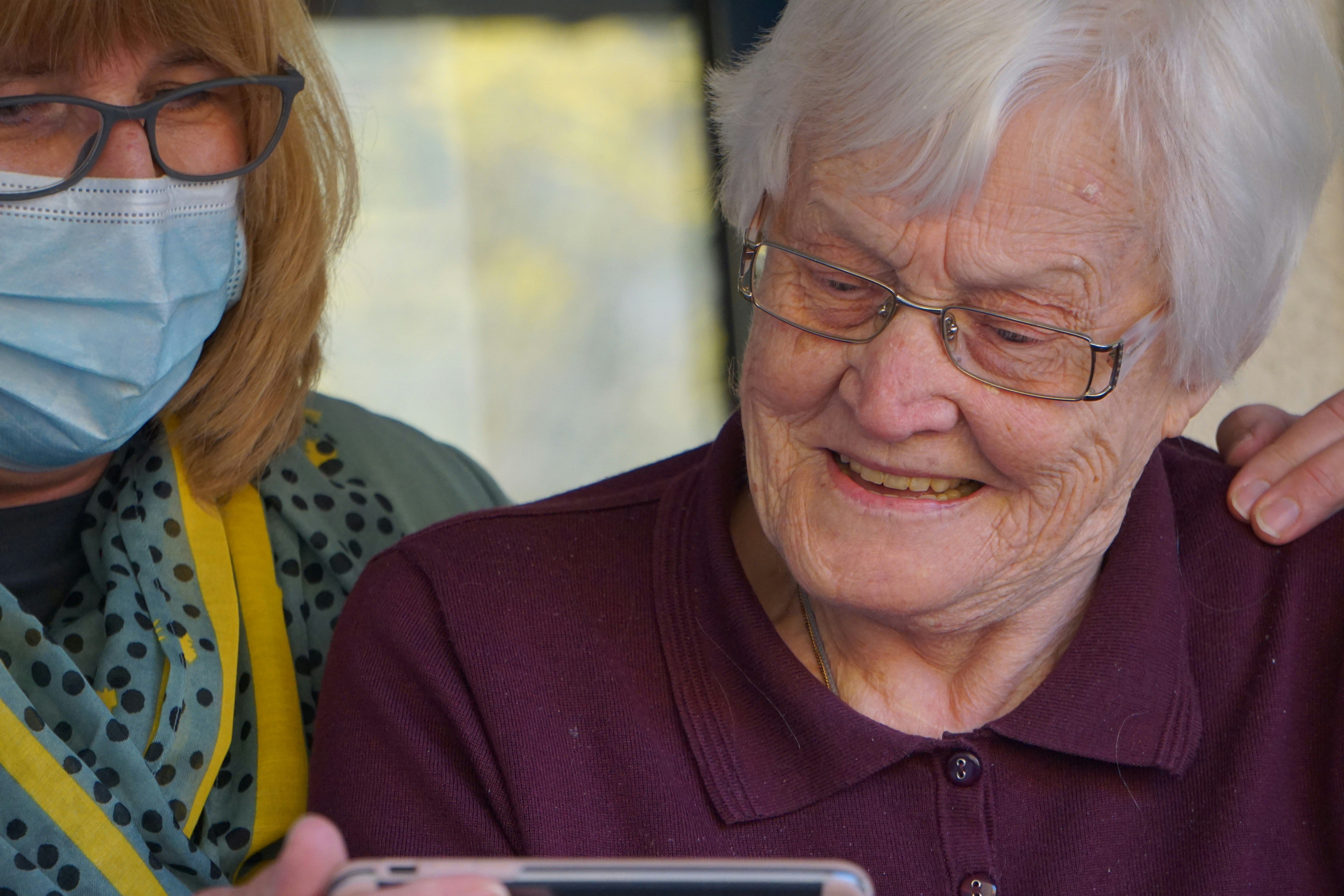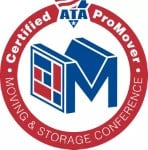The decision to transition to an assisted living community is never easy. In fact, it can be a downright emotional rollercoaster — for both you, your parent(s), and your loved ones. However, although not an easy decision, it’s also often the best one for everyone involved. Because, ultimately, these types of care facilities are designed to enhance your loved one’s physical and emotional well-being — as well as their overall quality of life.
Family members, caregivers, and the assisted living facility you chose play equally crucial roles in properly navigating this complicated process. But Oz Moving is here to help you every step of the way too. That’s why we’ve compiled the comprehensive guide below to help guarantee a smooth, stress-free transition.
Recognizing the Need for Assisted Living
As our loved ones age, their needs will change. And it's important to be aware of signs that might indicate assisted living is indeed a good option to ensure their overall wellness.
For example, elderly parents who struggle with activities of daily living — such as bathing, dressing, and/or preparing meals — may benefit from the healthcare support and assistance offered in these communities.
Aging parents may also show signs of social isolation or require daily professional medical care. Perhaps you've noticed a decline in your loved one's well-being. Maybe they are suffering from Alzheimer’s or another acute illness. Or their own home environment no longer feels safe. Or they're simply struggling to manage daily tasks independently.
These changes can be subtle at first. However, it's important to address them promptly. And, of course, to consult with your parent themselves first and foremost.
Involving Other Family Members
Including other family members in the discussion is crucial too. It helps take the pressure off, gain perspective, and get overall support.
Power of attorney may need to be considered, professional advice may need to be sought, and difficult financial and other decisions may have to be made. Especially if your loved one is no longer able to make decisions for themselves.
Overall, the emotional complexities involved in these transitions can be grueling. So it’s vital that you have a solid support system — both professional and personal — to offer resources and guidance throughout the process.
Choosing the Right Assisted Living Facility
Selecting the ideal assisted living community requires time and careful consideration. And the level of care offered is perhaps the most crucial factor. Nursing homes may often seem like the only option for many older adults. However, there are plenty of assisted living communities in the U.S. that offer a more residential setting with a wider range of independent living, long-term care and/or memory care options, and opportunities for social interaction.
The amenities offered should also be carefully evaluated. Different retirement communities and care centers offer a huge variety of amenities and living options these days too. So ask yourself — does the facility align with your loved one's interests and needs?
You know your parents better than most. And you want to be sure the facility you choose provides the specific level of care your loved one requires and deserves. So reach out, visit the centers in person, and ask questions.
Tips for Transitioning to Assisted Living
Once you’ve chosen a center, actually transitioning your loved one to elder care is probably the most difficult part. So we've compiled five key tips to guide you through the process below:
Tip 1: Prepare Emotionally and Physically
Both you and your loved one will likely experience a range of emotions during this transition. And a supportive community can significantly ease the adjustment. Care facility staff — and hopefully a few new friends — can also provide emotional support and guidance.
Remember that living situation changes can be overwhelming for anyone — but especially so for the elderly. So be sure to know the ins and outs of your loved one’s new environment. Establish a trustworthy support system. And stay calm.
Tip 2: Plan the Move
Moving day itself will be hectic — so meticulous planning is essential. A smooth transition requires clear communication with the assisted living community staff, your loved ones, the movers, the landlord, and so on. And you also want to coordinate logistics such as budget, move-in dates, furniture arrangements, access procedures, documents, and so on.
Home care providers, family members, and neighbors can all prove helpful here. And OZ has a few key tips specifically for preparing for a senior move too.
Tip 3: On-going Support and Open Communication
Open communication with your loved one, the assisted living community staff, and any other necessary entities is equally crucial during this time. Referrals for additional services — such as specialized medical care, Social Security, Medicare, etc. — will likely need adjustments during the move too. Fortunately, there are plenty of valuable resources — both online and off — to ensure a smooth transition. But it’s vital that you stay informed and on top of things during this time. And while that’s in no way easy — remember that you don’t have to go it alone. Reach out, ask questions, and voice your concerns.
Tip 4: Create a Familiar Environment
Once there, living space personalization is key for your parent to feel at home in their new environment. So bring familiar items like photos, treasured possessions, and collectibles, Adorn the walls with family photos. Bring that reclining chair your dad likes. And make sure that your parent feels connected.
Remember that older adults also often find comfort in routine — so unpack and arrange belongings in a way that reflects their previous living space. Familiarize your parent with the lay of the land so they know what’s what and where. And coordinate with the staff so they too know how to best facilitate your parent’s needs in recognizable, habitual ways.
Ultimately, the peace of mind that comes from knowing your loved one feels comfortable and secure in their new surroundings is paramount. And you likely know best how to make their new address a real home.
Tip 5: Visit Often
And as your parent starts to get settled in, regular visits are essential. Phone calls are of course a great way to stay connected and provide emotional support too — especially from other family members. But that pales in comparison to actually seeing you there.
So take the time and go pay them a visit. Bring the kids. Get to know the staff, talk to their neighbors and fellow residents, and get a feel for the changes and the new atmosphere. And maybe bring them some flowers and/or candy from time to time too.

Remember that decision-making may become more challenging for your loved one in their new home too. Many things might feel alien and strange. So your ongoing support and physical presence will make all the difference.
Be patient, be present, consult the caregivers, and offer support as needed. After all, your parent is the number one reason you’re here. So be there for them too.
Adjusting to Assisted Living
The initial adjustment will take time. So be patient and supportive as your loved one familiarizes themselves with the new routines, staff, and residents. The assisted living community will likely offer activities and social events to help them integrate. Encourage your loved one to participate and explore their new surroundings.
Navigating Challenges and Concerns
While the transition can be positive and enriching, it's natural to encounter challenges along the way. So here are some common concerns and solutions to consider:
-Emotional Adjustment:
Patience, optimism, and clear communication are key. Focus on the positive aspects of the new community — like social opportunities, security, and a fresh start. Care staff can also provide invaluable guidance during this time.
-Loss of Independence:
Some residents may feel a loss of independence in an assisted living setting. So it's vital that you communicate your loved one's needs and preferences to the staff. Many assisted living communities (6) offer a variety of independence-promoting activities (37) to help residents maintain a sense of control over their daily lives.
-Building New Relationships:
And socialization is essential for mental and emotional well-being. So encourage your loved one to build relationships with other residents and staff members. Participating in activities and spending time in common areas can help facilitate these connections, for example. As can you.
Conclusion
Remember that transitioning to assisted living should be an enriching experience for your parent. And by planning ahead, addressing challenges, and working collaboratively you can ensure a smooth and successful adjustment. And OZ Moving — your go-to senior moving company — is here to partner with you and your parent every step of the way too.








